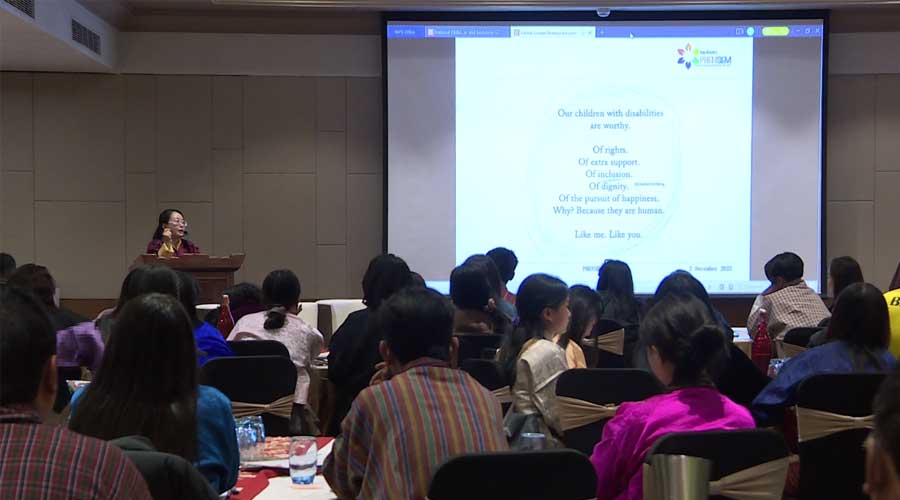
It has been three years since the government approved the National Policy for Persons with Disabilities. The policy was to bring proper coordination between stakeholders to create an inclusive society for persons with disabilities. However, they still lack coordination. This was raised during the two-day national seminar coinciding with the International Day of persons with disabilities.
Themed “Transformative Solution for Inclusive Development in Bhutan,” the seminar discussed creating equal opportunities and inclusive spaces for children with disabilities. The stakeholders discussed working together to create an inclusive environment.
“When it comes to whether the communities in Bhutan are conducive or not for persons with disabilities, I think it is. All the important points have been covered in the National Policy for Persons with Disabilities 2019, but I think what we are lacking is the implementation,” said Rinchen Khandu, a participant.
“There are very less resources like those which would really enable the children with disability to engage. At the same time, I am pretty sure there are locally available resources but there is very little awareness about the creation, production and design of those products. And I was very glad to connect with Bhutan Fab Lab yesterday through which I find a lot of greater hopes and collaborations and enhancing the functions of children with disabilities,” said Dechen Tshomo, Occupational Therapist at JDWNRH.
“I think the government’s role is basically to have good policies in place. So, for that matter, we already have a policy for persons with disabilities. And I am sure the implementation is also happening. It’s just that I think the visibility of the implementation hasn’t been given much focus,” said Dil Maya Rai, a Member of the Parliament.
They said that many organisations provide different services which lead to duplications. Some pointed out that there is a need to strengthen cross-sectoral coordination and collaboration.
The participants also recommended the stakeholders come up with awareness, a legal system and collaboration for effective implementation to achieve inclusivity.
However, according to the Ability Bhutan Society, a Civil Society Organisation, making Bhutan an inclusive society is still a challenge because most of the infrastructure is not user-friendly, especially for persons with disabilities.
“Disability, we talk about the number, it is more in the rural setting. So, for the rural setting, the environment is not really conducive, that’s a reality. But for urban areas, even if it is not conducive, we can make it conducive. This is because the facilities are there or because we can make small arrangements and make it conducive for urban areas, but for rural, I think it is a little difficult,” said Kunzang N Tshering, the Executive Director of Ability Bhutan Society
According to the Population and Housing Census 2017, more than 15,000 Bhutanese live with some form of disability.
Karma Samten Wangda
Edited by Tshering Zam









